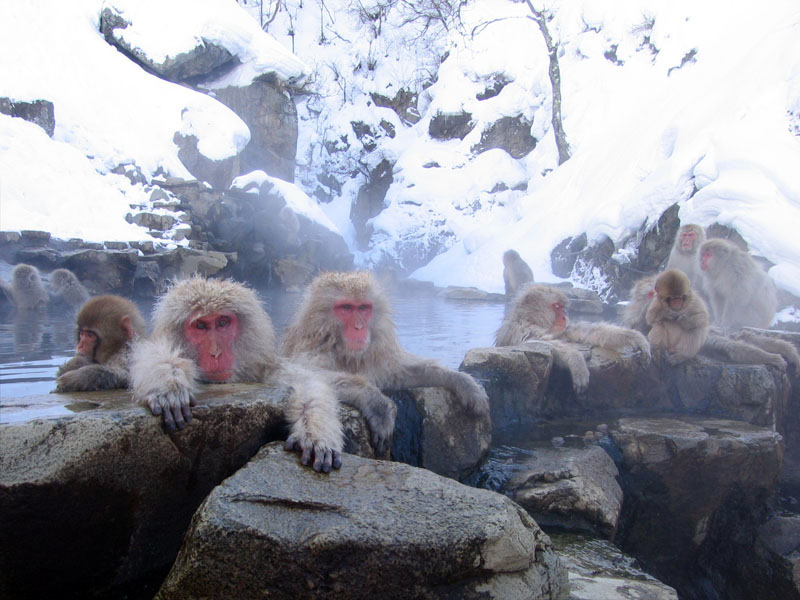(This I wrote for an upcoming newsletter on bullying. I may have covered some of this elsewhere in this blog but I will post a copy on here anyway.)
What can be more "all-American" than the 1983 movie "The Christmas Story" starring Peter Billingsley as "Ralphie"? To this day it plays back-to-back all day every Christmas on cable TV. Like many movies there are several sub-plots. One of the most memorable (besides the leg lamp) is when Ralphie finally stands up to his bully. The bully in this movie, Scut Farkus, fits most of the stereotypes of a schoolyard bully. He's big, has ruddy cheeks, and is not the most popular guy outside his little entourage. Of course Ralphie was an otherwise normal kid with rather thick glasses. The solution seemed rather simple. One day, after Ralphie had enough he finally stood up to the bully (to the point of overkill) and his mother had to pull him off. Ralphie of course did not get in trouble and that was the end of the bullying topic for that movie. Ralphie (Peter Billingsley) is all grown up now.
It would be nice if every bullying story came to such a perfect, all-American storybook ending as is frequently promised. The good guy wins and finishes off his school years happily (and popularly) ever after. I have heard many stories like this from people. I suspect that most people were bullied at some point in their lives and many claimed that they were just too nice and needed to build the adrenaline to defend themselves. After that they went on to live a normal childhood or adolescence. Of course people can also embellish stories. In real life things are not always that simple. I know because I have experienced my share of bullying. While I am on the Autistic spectrum nobody knew much about it back when I was in school and many saw me as "normal but eccentric". The conventional advice I tended to get from adults was well-meaning, but overly simplistic. It was usually along the lines of: "If he hits you, just hit him back." or "If they make fun of you, just ignore them or tell them off". Even some of the nuns in school would tell me to stand up for myself, but I knew that if I did I would be in just as much trouble if not more than the perpetrator, especially if my reaction was delayed. "Who started it?" would be a matter of my word against theirs and that of their friends. I wasn't the tallest kid but I was rather sturdy. It's not like I never thought of defending myself before. I detested violence, and while I always had a long fuse, I did get angry (just never at the appropriate moment). Adrenaline always came a few minutes too late for me. In my logical/analytical mind I would always have to think of consequences before I acted. For most people that would be a good trait, but I was too much the other extreme. I always feared that I would get suspended. Also people never seemed to understand that bullies are never alone. Even the victim is physically bigger there is usually a network of people who assist in retaliation. I was generally an independent type who had little use for group dynamics. Also, many times the bullies were popular, charming, or had well connected families. In real life bullies are rarely dumb, and they seem to intuitively know what they can and can't get away with. I even took Karate for a while, which in the 1980's was the fad way of dealing with bullies. I did OK in the sport, but it still didn't help. As with many on the Autistic spectrum I had slow processing which is is an issue in both anticipating trouble in the sometimes brief period of escalation and then reacting at the appropriate time.
"Boys will be boys" is another issue which can be a problem. I can recall times where I was having a problem and adults seemed sympathetic to my side at least on the surface, but then I would overhear them talking about the bully in terms of "Isn't he bold, isn't he a character" in other words they were not sincere and the bully, even if he may get an occasional detention, can sense that others find it "cute". Among peers there would always be "sympathetic" girls who would say "Just ignore him, he's a loser." only to end up on a date with the bully a week later. I understand that many boys and even some girls like to play rough and many adults overlook things until it is too late. People need to know the difference between "normal boy stuff" and bullying. There are many good-intentioned adults who see bullying as a "right of passage" where "a boy becomes a man" after he stands up to his childhood bully. Our culture I feel has romanticized this concept. Many adults feel (at least regarding boys) that by ignoring bullying they are practicing some sort of "tough love" by teaching self-sufficiency. This is a big problem for those with developmental differences. I mean there are always "low class" bullies who will pick on anyone, but most bullies are smart enough to know that some targets are off limits. That would include those with obvious physical handicaps or those who are in special-ed. On the other hand, adults may be more protective of a person with any visible disability or even an invisible one if it is properly labeled. Back then I didn't have any appropriate "labels", except for ADD and few people even knew what that was at the time. I was otherwise a stocky boy- and not just that but an Italian-American boy- not someone who should be acting like a wimp.
Another misconception people have about bullying is that it is mainly an issue for children and teenagers. Bullying is everywhere. Wolves have their own pecking orders, and having had a fish tank for a few years as a kid, it even seems to occur among fish. Even with "good natured" teasing a person is many times being tested subconsciously for where to be placed in the social packing order. It is just as much an issue for girls as it is with boys. Sometimes things get more complicated with girls as bullying can be even more subtle, and while boys may be encouraged to "be a man" and defend themselves, a girl may be encouraged to "be a lady" and politely drop the subject (of course this can also depend on the type of abuse). Bullying can also continue into adulthood- especially in the form of scapegoating. The person can end up being the one to blame for all that goes wrong. In adulthood it is even more often very subtle and covert. There are many different types of bullying and scapegoating as well as different ways in which people can participate. Passive-aggressive bullying is everywhere and very elusive to identify. Gossip and manipulation can do far more damage than most physical bullying. Gossip and prepare the path for a bully by socially isolating or discrediting the victim so that they won't have as many people to back them up. There are even bullies who take on the appearance of do-gooders. It's hard to explain what I mean by this, but sometimes when people think they are saying or doing something for another's "own good" it's really not.
Nowadays, anti-bullying has become a fad. The "coolest" celebrities are jumping on the bandwagon. Whether this is indeed an "epidemic" as the media tends to spin it is subjective, but I do know that it's hardly anything new. Unfortunately I was bullied before "victimhood" became fashionable. Overall, I am pleased that this issue is being addressed publicly, but there is a cynic in me that suspects that some of it can be plastic, especially if one is to read between the lines. Much of the anti-bullying debate is geared to specific groups of people. Two of the most common groups are those with Autism/Aspergers and LGBT... youth. I am not saying this is bad in and of itself. No one should have to take abuse regardless of their neurological status or their sexuality. The problem is with focusing the bullying awareness to select groups. For one thing if people are put into groups where they are perceived as sacred cows, it may stop bullying on the surface but create a resentment (or a begrudgery) which may haunt people in the long run. Also one should not need a label, group identity, or formal diagnosis to be treated fairly or to feel safe.
As for solutions, suggestions and interventions I unfortunately don't have any simplistic "one-size-fits-all" solutions. I can give suggestions. First I would suggest investigating every individual situation and put yourself in the shoes of the people involved. Listen to all sides of the story. Using intuition is imperative. Also aim to create a culture where physical violence is not accepted. I'm not saying that kids can never play like kids or boys can't be boys within reason, but things have to be mutual. If someone seems upset, investigate. Places like rest rooms, locker rooms and showers are common places for bullying in ways both physical and verbal. These environments are often unsupervised and yet when kids are changing clothing or using the bathroom they are most vulnerable and exposed. Kids who are overweight, or have physical differences are especially vulnerable. I'm not saying someone needs to stand over people and watch as I can see how that can be mutually uncomfortable- and creepy, but at least have someone of authority within ear shot in case someone needs help. The cliches of jocks...being jocks... may seem like harmless, typical immaturity, but it can easily escalate to something more serious. I hate to be even this blunt but seriously, these are areas where ugly things can happen.
In the case of people with Autism, it's not impossible that they can learn ways to defend themselves to a point, but remember they may have delayed reaction time and many also have sensory sensitivities. What looks like harmless tickling can be torture to some people. Some can be startled by loud noises and bullies can use that thinking if the person reports it they will look petty. Don't assume that the individual is just overreacting. One reason people on the spectrum can be frequent scapegoats is that they have a harder time getting credibility when they discuss how they are treated. The attitude is sometimes "Who's being bullied?", "Oh him/her, but he/she is a little weird or maybe a little slow..." Then people roll their eyes and don't even want to investigate.
Most of all the people intervening need to be sincere at the deepest level. The moment people find the bad behavior cute or funny, even if the bully gets the worst short-term punishment, kids can intuitively sense if the adults are taking things seriously. In the case of verbal abuse, "Just ignore them." or "You tell them to knock it off!" doesn't always work and suggesting a witty one-line comeback will do little or no good after the fact. It's also important to recognise that a conflict can be more complicated than perceived and not to make the "bully" into the scapegoat. Many times the "good" kids are passively participating knowing that they will come out looking pretty. The so called "bully" is sometimes just doing the dirty work and is being used as a scapegoat themselves. As for supporting anti-bullying laws it is hard to be for or against them without knowing the details. I'm not saying that they can never help, but if they are too simplistic and blind the laws themselves can end up being manipulated and abused. It is most important to prevent bullying by creating a culture of mutual respect for the individual differences of others. In other words fight bullying at it's roots. If we just handle the "incidents" were just fighting the manifestations of the problem and the aggressors will just keep changing their methods and become even more clever. Being approachable is also important. It has to be easy for people to report abuse of all types with the expectations of confidentially and professionalism. It's also important to not jump to conclusions and to handle the situations individually with fairness and empathy.
































